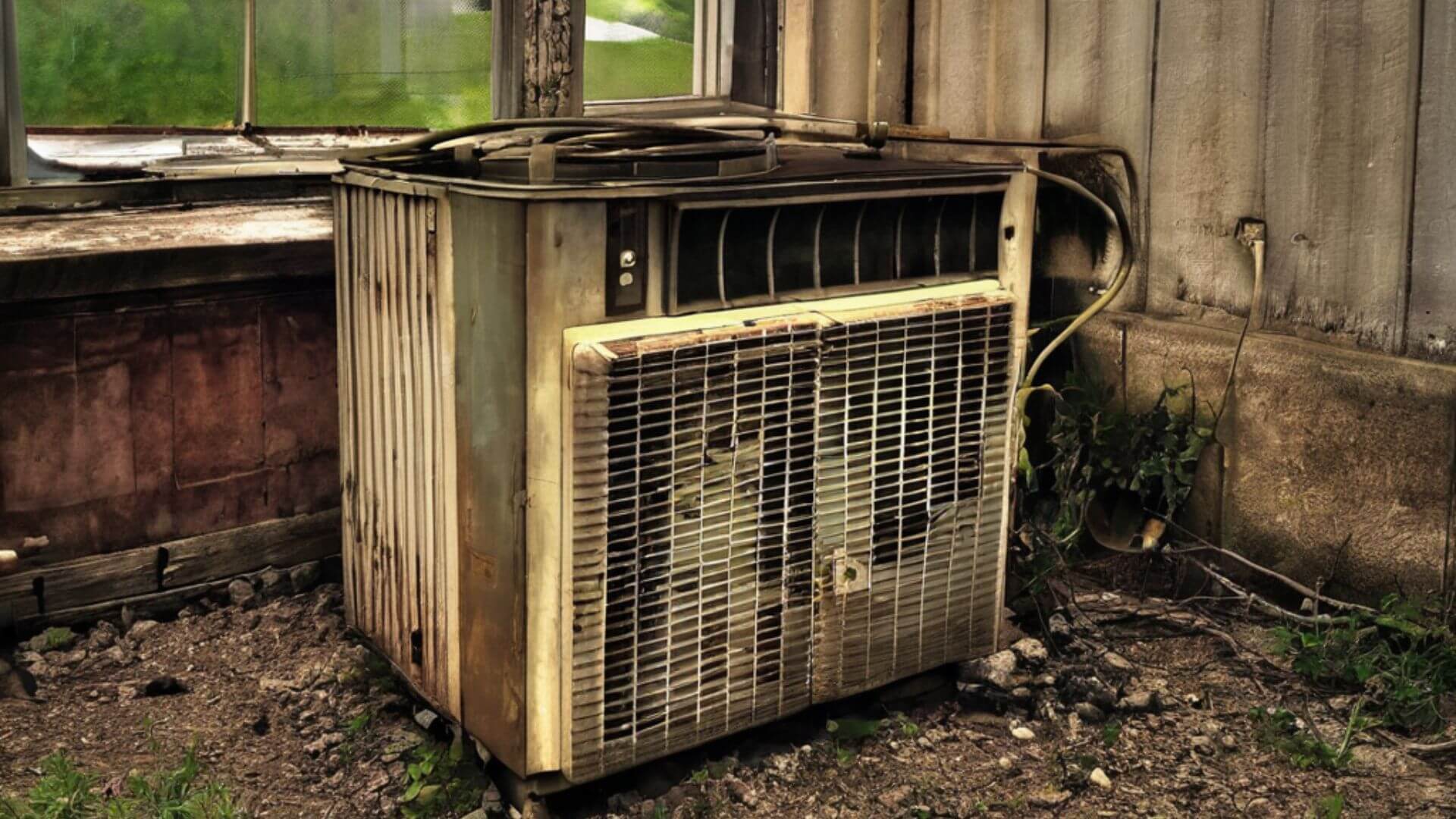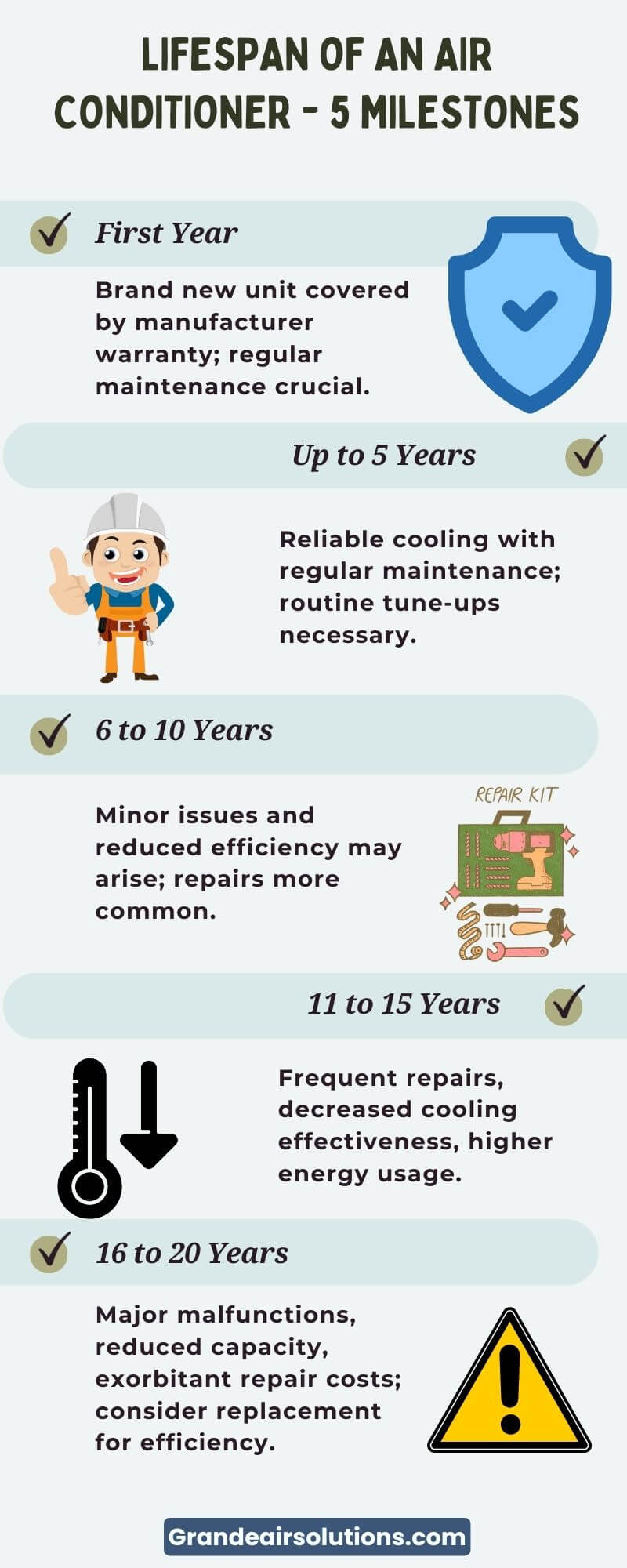
Are you wondering whether it's worth fixing your 20-year-old AC unit? The cost of repairs and the possibility of ongoing issues can confuse a decision. But before you rush into any choices, it's crucial to understand the factors involved and weigh your options carefully.
When considering whether to repair or replace your aging AC unit, two key factors come into play: the cost of a replacement and the cost of AC repair Pflugerville. But which option is truly more cost-effective? Is fixing a 20-year-old AC unit a wise investment, or should you consider replacement a better long-term solution? Let's take a closer look at the details to help you make an informed decision.
An air conditioner is essential for a comfortable indoor atmosphere, especially during the hot summer months. However, like any mechanical equipment, an AC unit has a finite lifespan. Understanding the typical lifespan of an air conditioner is crucial when considering whether it's time to replace your unit.

Let's break down the year ranges and the changes that may occur with each range:
It's important to note that these year ranges are general guidelines, and the lifespan can change depending on variables like the quality of the unit, usage, and maintenance. However, industry standards and recommendations suggest considering replacement when your air conditioner reaches the 15 to 20-year mark. At this stage, the cost of repairs and declining efficiency may make investing in a new, energy-efficient unit more cost-effective.
A well-maintained air conditioner can provide reliable cooling for years, but it's essential to regularly evaluate your unit's overall condition and performance. In the next section, we'll explore the potential consequences of using an AC unit past its expected lifespan and learn about the signs of failure to watch out for.
Using an air conditioner past its expected lifespan can lead to various consequences. It's essential to be aware of the signs that indicate an aging AC unit may be failing or struggling. Addressing these signs promptly can prevent further damage and potential safety risks.
Here are seven common signs of AC unit failure:
Here's a detailed comparison to help you make an informed decision:
Here's a table comparing the estimated costs and savings for a repair versus replacement scenario:
| Upfront Repair/ Replacement Cost | 10-Year Operating Cost (SEER 10 vs. SEER 14) |
| $500 (repair) | $18,840 |
| $5,000 (Replacement) | $13,340 |
Repairing the 20-year-old AC unit with a SEER of 10 would cost $500 upfront, but the annual operating cost would be higher at $1,884 compared to $1,334 for a new unit with a SEER of 14. Over a 10-year period, the total savings from replacing the unit would be $5,500, outweighing the higher upfront cost of replacement.
While the decision ultimately lies on your specific circumstances and budget, replacing a 20-year-old AC unit with a newer, more energy-efficient model can often provide long-term cost savings, improved comfort, and environmental benefits.
To ensure your aging AC system continues to work efficiently and effectively, it's important to follow proper maintenance practices. By taking proactive steps, you can increase your AC's lifespan and avoid costly repairs or replacements in the future. Here are seven tips to help you keep your AC system running smoothly:
| Tip | Description |
| Regularly clean or replace air filters | Clogged filters can reduce performance and strain the system. Clean or replace filters every 1-2 months. |
| Check and repair ductwork. | Poorly insulated or leaking ducts can cause energy loss and reduced cooling efficiency. Inspect and repair the ductwork if necessary. |
| Schedule professional inspections | Annual inspections by a qualified technician can catch potential issues early and ensure optimal performance. |
| Clean condenser coils | Remove debris from the condenser coils to maintain efficient heat transfer. |
| Maintain clear airflow around the unit. | Keep the area around the outdoor unit clear of obstructions to ensure proper airflow. |
| Use a programmable thermostat. | Programmable thermostats can reduce strain on the AC system by setting temperatures depending on your schedule. |
| Consider upgrading to energy-efficient AC units. | Energy-efficient units offer lower energy consumption, improved performance, and potential cost savings. |
When considering the lifespan of your aging AC system, upgrading to energy-efficient units is a wise investment. Energy-efficient AC units are designed to consume less electricity while delivering optimal cooling performance. Here are some benefits of upgrading:
Being Absolutely SURE Your 20-Year-Old AC Will Be Fine For the Next Few Years:
When gauging the future reliability of your 20-year-old AC unit, it's essential to have peace of mind. To ensure that your AC will continue functioning optimally for the next few years, it's highly recommended that you get a professional inspection. Grande Air Solution is one of the leading providers of installation, replacement, and AC repair in Pflugerville. It has a lineup of experienced HVAC technicians.
They will thoroughly inspect your AC unit, identifying any potential issues or areas of concern. This professional assessment will give you a clear understanding of the current condition of your AC and its future reliability.
During the inspection, our technician will examine various components of your AC unit, including the compressor, coils, electrical connections, and refrigerant levels. They will also evaluate the overall performance and efficiency of your system. Based on their findings, they will provide detailed AC repair recommendations tailored to your specific situation.
